An India-Pakistan love story that went horribly wrong
- Published
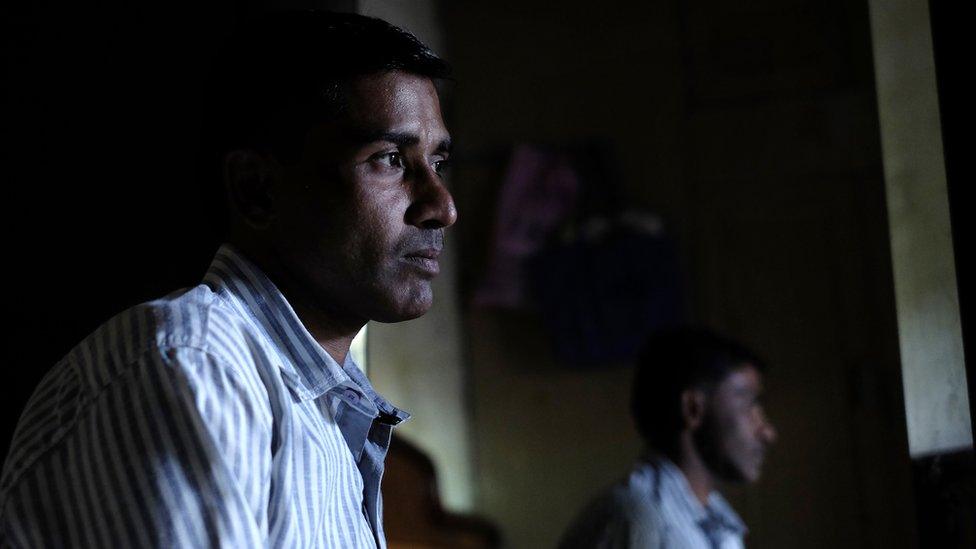
It's often said that falling in love can be dangerous.
But as a young man growing up in the town of Rampur in northern India, Mohammad Javed never imagined his love for a Pakistani relative would see him branded a terrorist and sent to jail for eleven and a half years.
Two years after a court cleared him of all charges, he shared with the BBC his extraordinary tale of falling in love, the letters they exchanged, his abduction and torture by the Indian authorities, the long years spent in prison and the most heartbreaking part of all - losing his love.
Javed, now 33, met Mobina for the first time in 1999 when he took his mother to Karachi to visit her cousins and uncles who had migrated to Pakistan after the partition of India in 1947. For the couple, it was love at first sight.
Love blossomed
"Within a month of our meeting, we expressed our love for each other," Javed told me when I visited him at the modest home he shares with his parents, brothers and their families.
"We were at a family wedding where there were other young women and I think she felt insecure. She took me aside and told me that I was not to look at any other girl since she was in love with me. I told her I felt the same way."
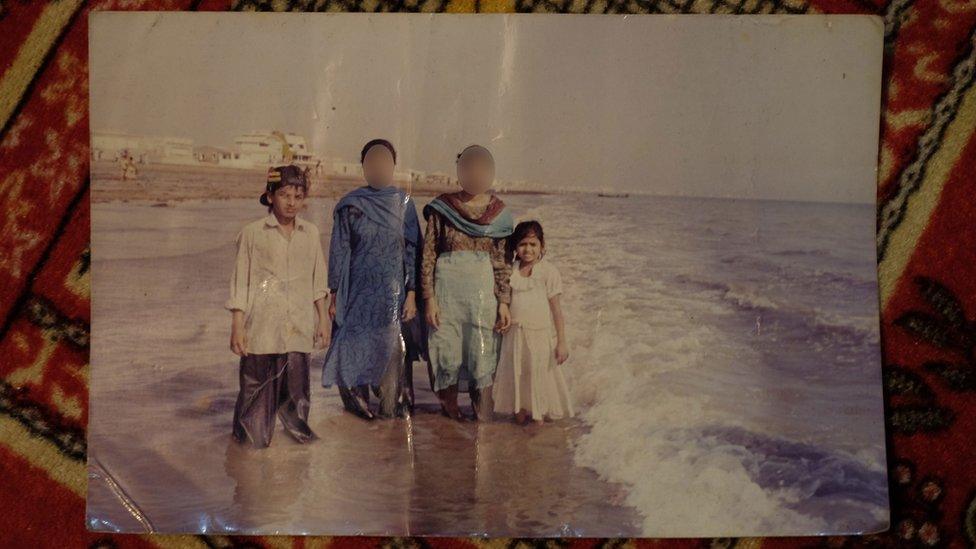
Javed fell in love with Mobina (second from right) at first sight
Love blossomed - and deepened - during the three-and-a-half months that Javed spent in Karachi.
"She would leave home in the morning telling her family that she was going to college. I would meet her outside the college gate, and we would go and hang out in Sipari Park," he said.
On his return to India, the television mechanic spent his entire salary on calls to Mobina whom he still refers to by her pet name Gudiya, or Doll.
"Cellphones hadn't arrived here then. So I would go to a telephone booth and call her. It was very expensive, I had to pay 62 rupees [at the time nearly £1; $1.45] a minute to speak to her."
Where to live?
A year later, he travelled to Karachi again, this time for two months.
By now, their families were aware of their feelings and although no-one had any objection to their union, there was one bone of contention - Mobina's family wanted Javed to move to Pakistan, while Javed and his family wanted her to come to India.
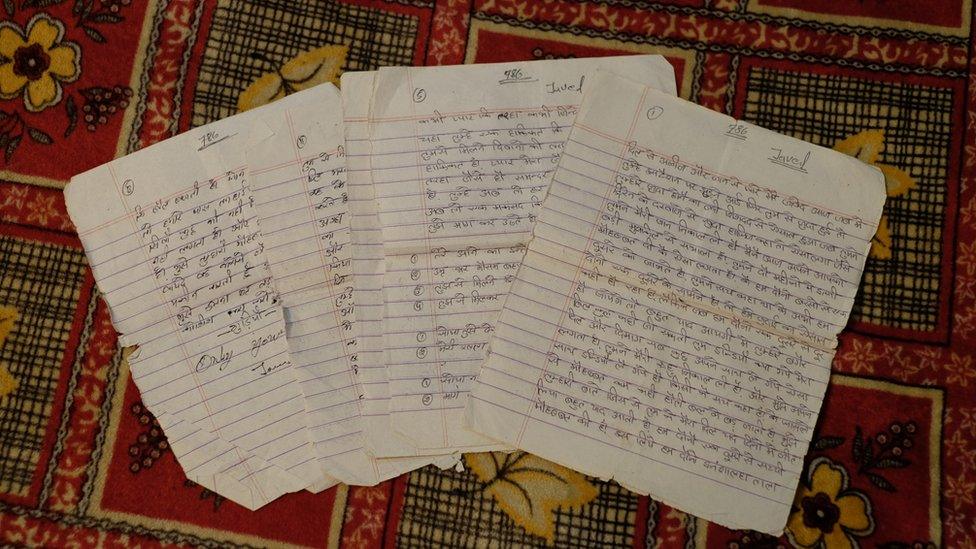
Mohd Javed still carries one of Mobina's letters with him
"This time as I prepared to leave, she said, 'You go, I will convince my family and then you come back and take me with you.' I didn't know that when I left, I would never return. That I would never see her again," he says, wistfully.
Over the next two years, Javed regularly called Mobina and they wrote each other long love letters.
When Javed received the first letter, he hit a hurdle - he had little schooling and couldn't read Urdu, the language in which Mobina wrote.
So he enlisted the help of his friends - Maqsood who read the letters out to him, Taj Mohammad who translated and wrote the letters in Hindi so Javed could read and re-read them, and Mumtaz Mian who printed a floral design along with "MJ" - the initials of the young lovers - on sheets of paper on which Maqsood wrote out Javed's response to Mobina.
"Her letter was 10 pages long. I wrote her a 12-page letter. It took me 12 days to write it," he says.
Abducted, tortured
And then one day, everything changed.
"I still remember the day very clearly," says Javed. "It was 10 August 2002. It was a Saturday. I was in my shop when a man came and asked me to go with him and fix his television. I told him I didn't do house calls, but he seemed quite distraught, so I agreed."
As they walked a few metres from the shop, a car pulled up and he was abducted.
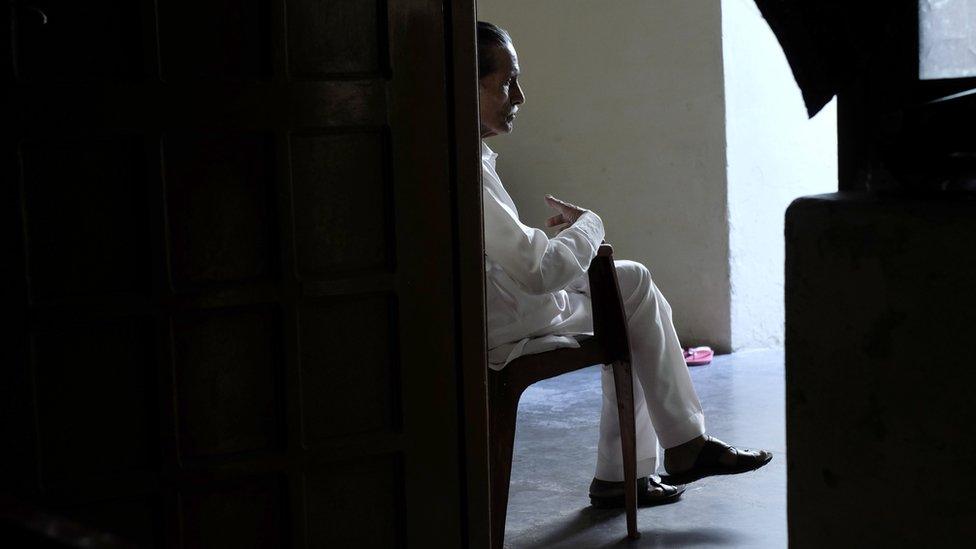
Mohammad Shafique, Javed's father, says his son's life has been ruined
Initially, Javed says, he thought they were criminals, "but then I overheard them talking and I could understand that they were from the police".
His ordeal began in the car.
"They took away my wallet, watch and other things. I had two of Mobina's letters on me and they took them away too. They threatened to shoot me if I didn't keep quiet. They said they'd abducted my family too and that they were being tortured in another car.
"I was crying, begging them for mercy."
After a while, they blindfolded him and when they took it off, Javed found himself in a room where he says he was tortured for the next three days.
"They beat me black and blue, hung me upside-down and kept lowering my head into a tub of water. It was so painful. I couldn't bear it any longer. I begged them to kill me."
'Dreaded terrorist'
Javed was accused of being "an agent" for Pakistan's ISI intelligence agency, and his tormenters claimed he had been passing on secrets about the ministry of external affairs and defence ministry to Islamabad.
Three days later, they brought him back to Rampur and his three friends - Maqsood, Taj Mohammad and Mumtaz Mian - were also arrested.
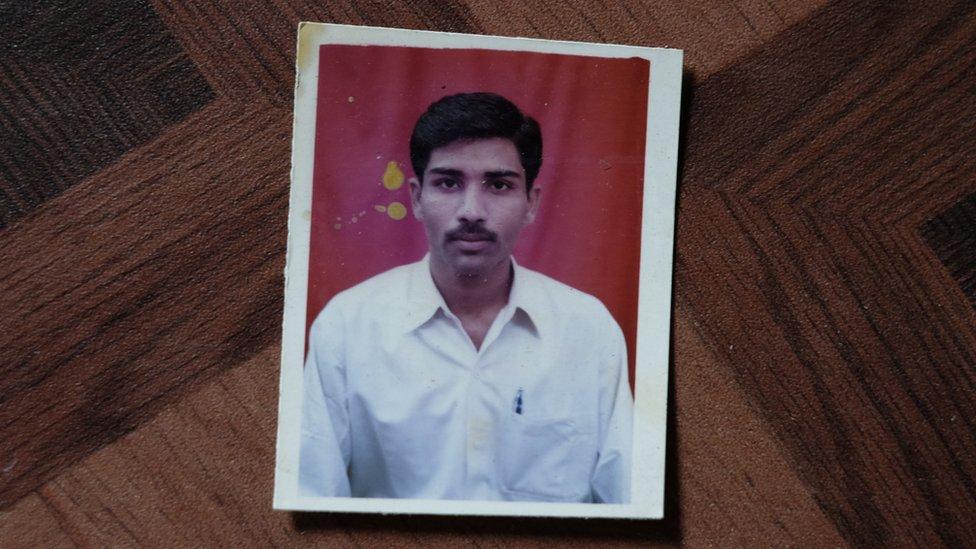
Mohammad Javed spent eleven and a half years in prison
The next day, the four men were produced in court and paraded before journalists as "dreaded terrorists" who were "waging war against India".
The authorities said Javed's two visits to Pakistan had been to meet his ISI contacts and that his calls to Karachi were to pass on secrets to them.
A month and a half later, they were charged under India's controversial special anti-terror law, external, The Prevention of Terrorism Act (Pota).
"This meant we couldn't get bail. We were so demoralised. We were told if we were convicted, we could get the death penalty."
Javed says he has no idea why he was singled out. "But in jail, people said it was because of the Kargil conflict, external and that any Muslim who had travelled to Pakistan soon after the fighting was a suspect."
A spokesman for the campaign group Rihai Manch, external told the BBC that there are dozens of young Muslim men like Javed who have been held in prisons across India on trumped-up charges.
'Love kept me sane'
The hardest part of jail life, says Javed, was when there was a family wedding or when his father fractured his leg and he couldn't visit him. "I was lodged in Rampur jail. I was so near, yet so far."
In prison, he also lost his best friends - Maqsood, Taj Mohammad and Mumtaz Mian blamed him for giving their names to the police.
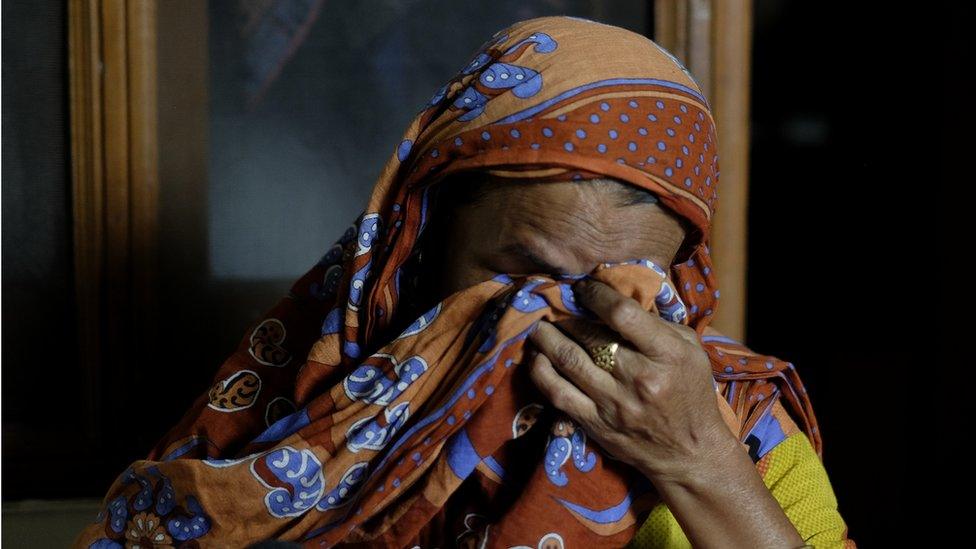
Afsana Begum, Javed's mother, blames herself for her son's misfortune
Javed says it was the memory of his love that kept him sane during the long years in jail.
"I used to tell my fellow prisoners about Mobina, how we fell in love, her habits, how she would tease me when I visited her. This made my time in prison more bearable and helped me keep her memory alive."
The years were tough for his parents too.
Javed's mother Afsana Begum blamed herself for her son's misfortune. "If I hadn't insisted on going to visit my relatives in Karachi, maybe he would have been spared the ordeal," she tells me, wiping away tears.
His father sold his land and the family jewellery and accumulated massive debts to hire lawyers to fight his son's wrongful confinement.
'I still love her'
Finally Javed was freed from jail on 19 January 2014, a day after a court threw out all charges against him and the judge said the prosecution's evidence did not add up.
"When I walked out of jail, for a while it was difficult to believe that I was really free," he says, adding, "but one-third of my life, which was the most important time of my life, my entire 20s, was taken away from me."
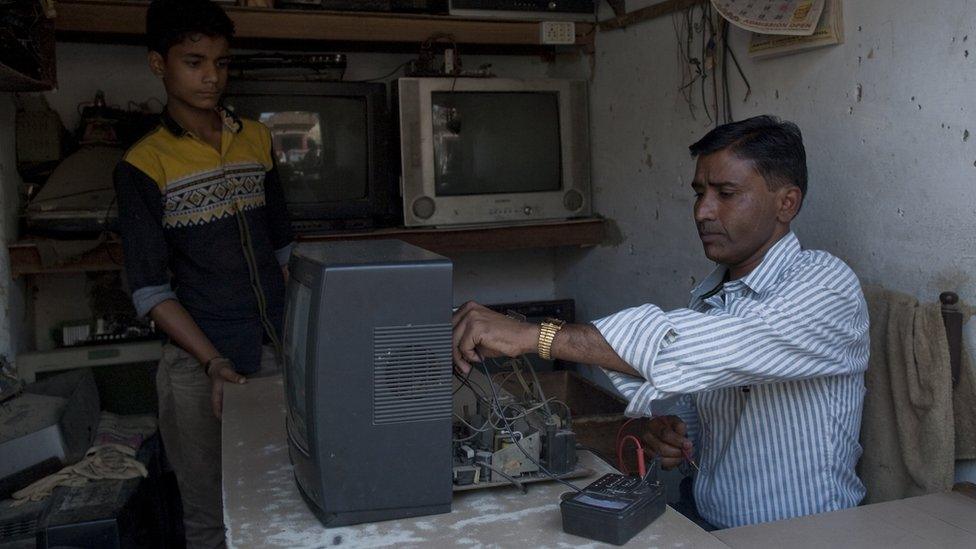
Today, he's trying to rebuild his life
Over the past two years, Javed has been trying to rebuild his life, bit-by-bit. He's taken a shop close to his house where he repairs old TV sets, but he's angry that there's been no compensation and no punishment for the people who ruined his life.
I ask him if he's been in touch with Mobina since his release.
"No, it's been a long time, she may be married," he says.
I ask him if he would like to get in touch with her?
"I have managed to expel her from my head, but not from my heart. I still love her, but I'm afraid to call her. What happens if they go after me or my family again?"